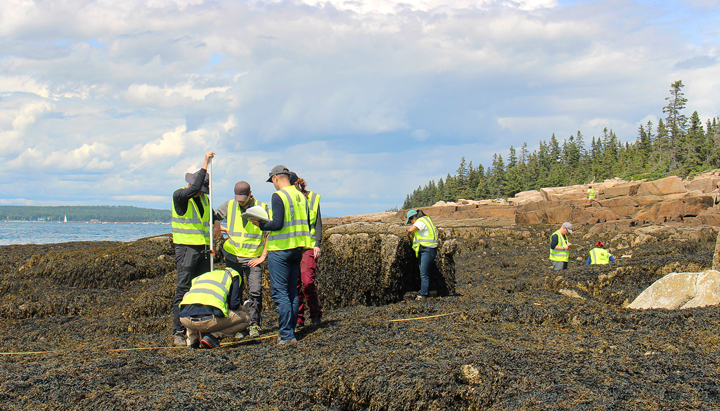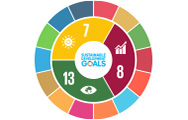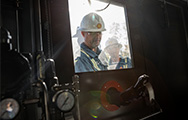Environmental partners
We work with partners to reduce our environmental impact, improve areas around our operations and ensure local communities benefit from our presence.
Together, we share our scientific and conservation knowledge with industry and environmental groups and engage on sustainability challenges.
The International Union for Conservation of Nature (IUCN) has been our global partner focusing on biodiversity policy and projects for more than 20 years. In 2019, together we started working with European utility companies EDF and EDP on ways to mitigate the impact of solar and wind power projects on biodiversity.
IUCN has also set up independent scientific panels to help us mitigate environmental impacts. In 2019, the Western Gray Whale Advisory Panel received a new three-year mandate to advise Sakhalin Energy (Shell interest 27.5% minus one share) in Russia on assessing and managing its impact on western gray whales.
IUCN and Shell Petroleum Development Company of Nigeria Limited (SPDC) have continued to collaborate with others in Nigeria to monitor the biodiversity recovery in areas where SPDC’s new remediation standard is being applied (see Spill prevention and response in Nigeria).
We also collaborate on local projects. In 2019, Shell Oil Company partnered with the Coastal Conservation Association to help protect the shoreline of Louisiana, USA. To do this, we are using artificial floating islands made from recycled plastic water bottles. The islands, which host around 2,500 square feet of native grasses, attract marine life and act as a barrier against strong waves.
Shell Development Oman continued to work with Wetlands International to support bird migration counts of the Wetlands Reserve in Al Wusta Governorate, which includes the Barr Al Hikman peninsula. In 2019, the autumn migration survey results showed that more than 200,000 birds of around 60 different species made the intertidal wetland on the coast of Oman their home for resting and feeding during their annual migration.
Employee engagement
We partner with Earthwatch to give Shell employees a chance to hone their sustainability leadership skills and make a direct contribution to scientific research and global conservation efforts. In 2019, 96 employees from 27 countries took part in Earthwatch science and learning expeditions.

Shell employees collect samples as part of an Earthwatch expedition helping scientists at the Schoodic Institute, Maine, USA, understand the impacts of climate change on the local environment.
Through the Earth Skills Network, employees share business skills with staff in IUCN or UNESCO-protected areas. In 2019, six employees supported 18 staff from these organisations in protected areas, including Nigeria’s Gashaka-Gumti National Park.
20+ years of collaboration with IUCN and Earthwatch
International Union for Conservation of Nature (IUCN)
joint projects
years of the Western Gray Whale Advisory Panel
conservation commitments since 2003 [A]
Niger Delta Panel recommendations implemented [B]
Earthwatch Europe
Earthwatch expeditions
Shell participants, 56 research projects
hours of data collection
Earth Skills Network
protected area staff supported
protected areas, including World Heritage Sites
[A] Shell will not explore for, or develop, oil and gas resources in natural World Heritage Sites; we will further improve the way we operate in International Union for Conservation of Nature (IUCN) Category I-IV protected areas and areas of high biodiversity value; we will publicly report on our activities in IUCN Categories I-IV; and we will work with IUCN and others to help safeguard protected areas.
[B] 78 out of 83 IUCN Niger Delta Panel recommendations have been agreed and implemented.
 Climate change
Climate change
 Sustainable development goals
Sustainable development goals
 Safety
Safety
 About our data
About our data
